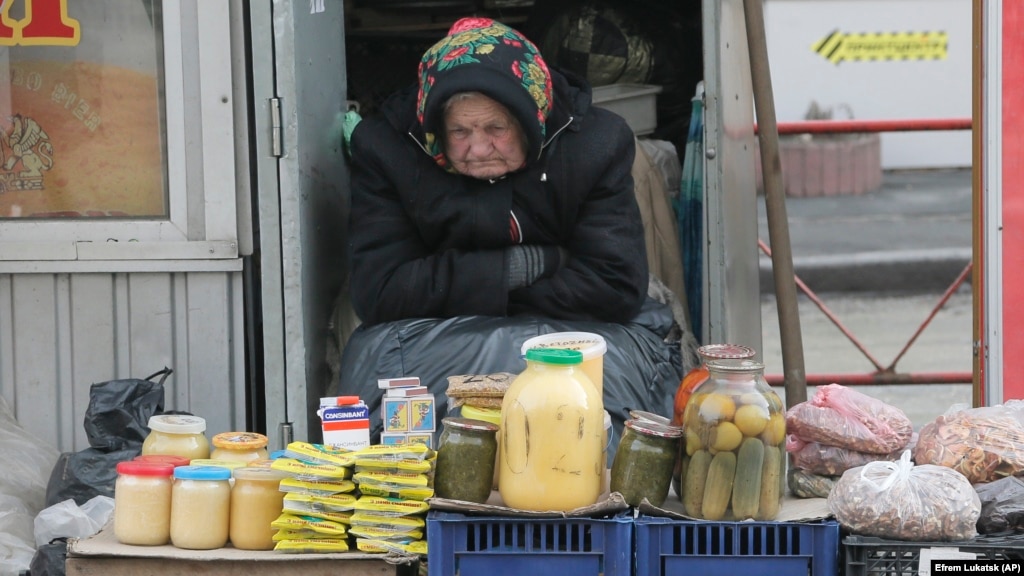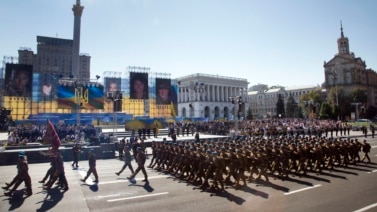
The president of Ukraine, Petro Poroshenko, has asked Prime Minister Arseniy Yatsenyuk to resign.
Demonstrators and politicians say that Yatsenyuk's government is corrupt. Yatsenyuk's critics called for a motion, or vote of no-confidence in the Parliament on Tuesday.
The motion must have 226 votes to pass in parliament, but only 194 out of 339 members supported it. The vote cannot be repeated in the current session, which lasts until July.
Even though the vote failed, it showed that “this government already has no parliament support. It will not be able to carry out laws,” said Yuriy Lutsenko, the parliamentary head of Poroshenko’s party.
Ukrainians are not the only ones worried about the problems in its government. Christine Lagarde, director of the International Monetary Fund, says foreign aid may stop coming into the country. It has slowed over the past few months. Other creditors will not lend money to an unstable government, says economist Dmitry Polevoy.
The economy of Ukraine is weak after a recession that lasted 18 months. Ukraine’s currency, the hryvnia, has lost 10 percent this year.
Earlier this month, Poroshenko and Yatsenyuk tried to stand together after Economy Minister Aivaras Abromavicius and Deputy Prosecutor General Vitaliy Kasko quit.
The officials who resigned said the government was corrupt, and that ruling-party officials were blockingreforms.
Without the reforms, foreign banks are not willing to lend money to support an economic recovery.
I'm Dmitriy Savchuk.
Dr. Jill Robbins wrote this story for Learning English based on articles from BBC and Bloomberg News Kathleen Struck was the editor.
What do you think about the events in Ukraine?. Write to us in the Comments section and on our Facebook page.
Words in This Story
motion – n. a formal suggestion or proposal that is made at a meeting for something to be done
vote of no confidence – n. a formal vote by which people (such as the members of a legislature) indicate that they do not support a leader, government, etc.

